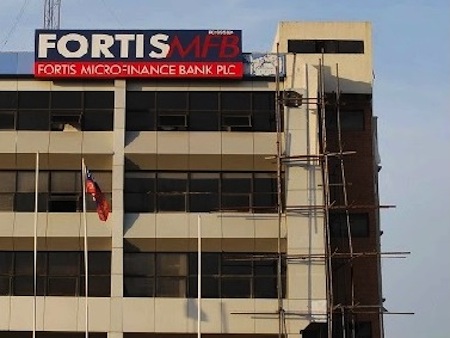The Nigeria Deposit Insurance Corporation (NDIC) has called for deeper collaboration with the nation’s judiciary to address persistent legal challenges hindering its mandate, including prolonged court cases and restrictive orders that delay the resolution of failed banks.
This appeal was made during a sensitisation seminar held for Federal High Court judges in Lagos on Monday. The event, organised in collaboration with the National Judicial Institute (NJI), focused on improving understanding and judicial handling of issues related to deposit insurance and banking sector stability.
Addressing participants at the seminar, the Acting Managing Director and Chief Executive of the NDIC, Emily Osuji, said while the Corporation had made notable progress in its operations—including the recent swift closure of Heritage Bank, it continues to face hurdles such as lengthy litigation processes, improper garnishee orders, and enforcement actions that directly affect its operations.
Speaking on the theme ‘Strengthening Adjudication and Depositor Confidence in the Banking System’, Osuji noted that despite legal provisions in the NDIC Act 2023, including Section 69, which restricts certain court orders during the Corporation’s core functions like reimbursing depositors or acting as a liquidator, some courts still entertain such actions.
She explained that Section 69 mandates that any claimant with grievances during NDIC’s performance of its core duties may only seek limited monetary compensation, such as insured deposit amounts for depositors or nominal share value for shareholders. Despite this, Osuji said, “legal actions are still being entertained against failed insured institutions and the NDIC without leave, and enforcement actions such as garnishee orders or attachments against the NDIC or its assets are being permitted.”
These legal bottlenecks, she warned, have hampered the Corporation’s ability to discharge its responsibilities effectively, posing risks to public confidence and systemic stability. She urged ongoing engagement with the judiciary to safeguard the integrity of Nigeria’s deposit insurance system and ensure smoother bank resolution processes.
Delivering remarks on behalf of the Chief Justice of Nigeria, Justice Kudirat Kekere-Ekun, Justice Inyang Okoro—Chairman of the NJI Board of Governors Education Committee—stressed the judiciary’s vital role in preserving the resilience of Nigeria’s financial system.
He said, “The financial sector is the lifeblood of any nation’s economy. A stable and resilient financial system is fundamental to economic prosperity, and at the heart of this stability lies an effective deposit insurance mechanism.”
Justice Okoro added that the courts, as the final arbiters in financial disputes, must ensure that legal decisions are fair, timely, and in line with current financial realities. He described the seminar as critical in equipping judges with the necessary tools to understand and effectively handle complex financial and regulatory cases.
He also highlighted emerging pressures from the growth of fintech and digital finance, warning that decentralised financial systems present new challenges for the regulation of deposit insurance. He urged judicial officers to adopt forward-thinking approaches in adjudicating such matters to keep pace with technological and regulatory changes.
The seminar underscores the NDIC’s ongoing efforts to align legal processes with its operational framework in order to build public trust, ensure depositor protection, and foster long-term financial stability.










